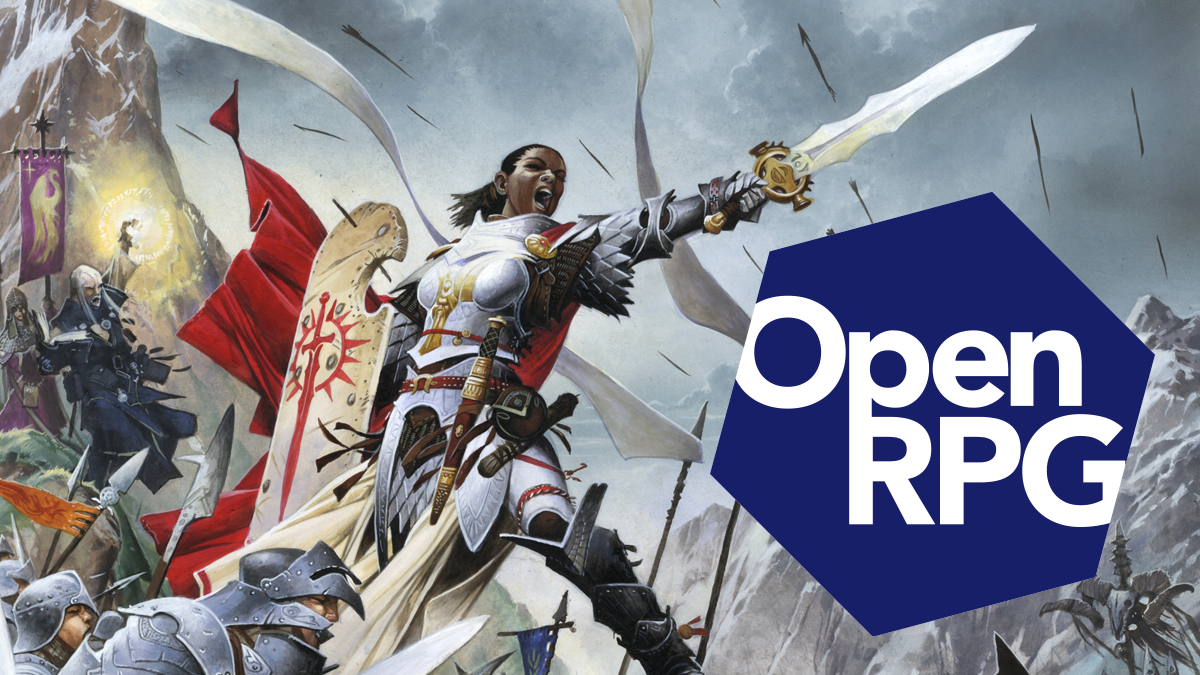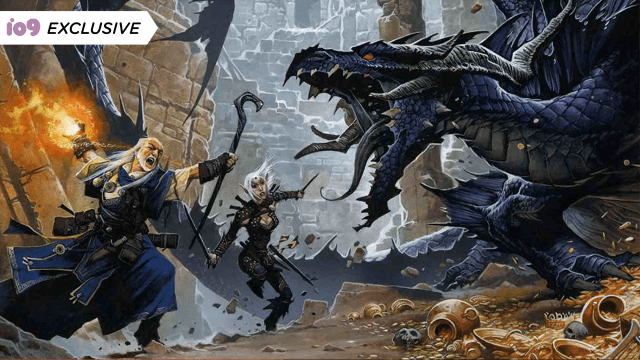While Wizards of the Coast was still assembling its party, other leaders in the tabletop roleplaying games industry were studying the blade. As fans waited for the Hasbro-owned company to respond to the ongoing controversy over the Dungeons & Dragons Open Game Licence, Paizo announced it would be financially supporting an initiative to establish a new gaming licence, dubbed the Open RPG Creative Licence, which will be known as the ORC.
Paizo does not intend to keep this licence; nor will any of its partner presses who have agreed to support this licence. Instead, Paizo and its team are ceding control to the Azora Law Group, whose co-founder worked on the OGL at Wizards of the Coast, and hope to establish a non-profit to steward the ORC. We sat down with Paizo president Jim Butler for an exclusive interview about the impact of the OGL and the partners involved in this new licence. The age of the OGL is over. The time of the ORC has come.
Linda Codega, Gizmodo: How long has the ORC been in the works?
Jim Butler, Paizo president: We started moving in this direction years ago, with the development of the Second Edition of the Pathfinder Roleplaying Game. Instead of basing that game on the specific mechanical expressions of System Reference Documents opened by the Open Gaming Licence, we started our new edition with a blank slate, decoupling our game mechanics from the copyrighted materials in prior SRDs in order to chart a new path.
We published Pathfinder Second Edition under the OGL because the OGL had — for more than 20 years — proven itself to be a safe harbour for publishers to collaborate and build off the work of one another, and we wanted to make sure that everyone in the community would be able to innovate off our designs.
The media controversy surrounding Wizards’ plans to change the OGL made it clear that any safe harbour that might have existed before was in jeopardy. We then started discussing our options with our attorneys at Azora Law and an ORC was born.
io9: Will the ORC be attached to any specific system reference documents or will it be a larger framework?
Butler: The Open RPG Creative licence is envisioned as a broader framework, along the lines of GNU or Creative Commons, in which companies may independently deposit their own System Reference Documents. In that sense it is not tied to a single system or small set of systems (and, importantly, is not owned by a single RPG publisher).
There are already a number of major companies signed up for the ORC licence, so it won’t launch without content. And more importantly, that content will grow over time safe from outside influences.
io9: How long do you think it will take to establish the ORC/finalise its first edition?
Butler: Members of our Leadership Team as well as our legal counsel were involved in the creation of the original Open Gaming Licence, so although this will be a significant endeavour — especially as we intend to make the licence itself permanent, perpetual, and irrevocable in line with the original intent of the OGL itself — we have a great deal of experience on the topic and are moving quickly.
We feel that in the current environment, speed is necessary. There are creatives and support staff in our industry that depend on game publishing for their livelihoods. They have invested in careers and companies based on explicit statements and promises from Wizards executives over the last 22 years, including multiple editions and SRD changes at Wizards. These creators need a safe harbour, as do we. Careers have been built by the promise of Open Gaming. Those should not be snuffed out in a moment due to one company’s shifting self-interest.
So, how long will it take? We expect a first draft released for feedback in February, and the final iteration depends on the publisher feedback we receive, finding or establishing the right foundation to protect the ORC, setting some standards agreeable to all publishers, and other elements vital to the long-term health of the ORC. Ultimately, the timeline will be driven by Azora Law, and they won’t release the final version until it’s ready.

io9: What kind of community input are you looking for during iterations?
Butler: Our goal is to ensure that the Open RPG Creative Licence is flexible enough to cover all types of RPGs and to be protected from any attempt to alter its primary mission. To that end, we’re looking for feedback from other publishers to ensure that the final licence covers their needs and that we’ve covered any potential pitfalls. We do not want a future owner of a particular company or a novel legal theory to come along to attempt to undo that clear and unequivocal intent. Avoiding that requires attention to detail, and feedback from our fellow publishers to make sure that the licence works for everybody.
io9: Do you have any further comments on Wizards of the Coast’s OGL Update?
Butler: The Open Gaming Licence was meant to benefit all game companies in the hobby games space. As the leader in that space, Wizards has the largest network of players and therefore is most positively benefited by the OGL. We’re baffled by the business rationale that drove the leaked OGL 1.1 and the negative impact to the entire hobby industry that its loss would create.
io9: Why is the ORC important to the future of gaming?
Butler: Even a mid-size company like Paizo can’t produce products that cover the wide range of gaming interests that exist in the Pathfinder and Starfinder worlds. Smaller and even mid-size publishers have crafted an amazing array of source materials, campaign worlds, novels, and more that support our games. They have created those extensions to Pathfinder and Starfinder through the “Infinite” programs hosted by OneBookShelf, Pathfinder and Starfinder compatibility licenses that opened up even more of Paizo’s games, our Community Use Policy, plus an array of amazing licensees like Foundry VTT, Fantasy Grounds, Roll20, Hero Lab, Demiplane, WizKids, and more than I can list here. That’s not even counting all of our amazing international partners publishing our games in French, German, Italian, Spanish, Russian, and Brazilian-Portuguese.
The OGL opened that up to everyone, and it is vital that the ORC licence do the same for the myriad creative publishers out there that bring their dreams to life. Paizo passionately believes that all games thrive in an atmosphere of cooperation and collaboration, even among publishers who are competitors. This spirit has guided the Open Gaming movement for more than two decades and made gaming what it is today.
io9: How will the ORC allow for greater accessibility to the TTRPG space?
Butler: The ORC will not be limited to just print books and static PDFs. As technology changes, publishers will be empowered to take advantage of the same licence and spread their works far and wide. From AR/VR to virtual tabletops; from screen readers to narrated novels; the Open RPG Creative licence will let publishers plot their own course and open their works to legions of fans who otherwise wouldn’t have the opportunity to know about them.
While you’re here, why not check out Gizmodo Australia’s guide to what’s streaming this month on Netflix, Prime Video, Disney+, Stan, Binge and more. We’ve also got one for all the good movies coming out in 2023 if that’s more your thing.
